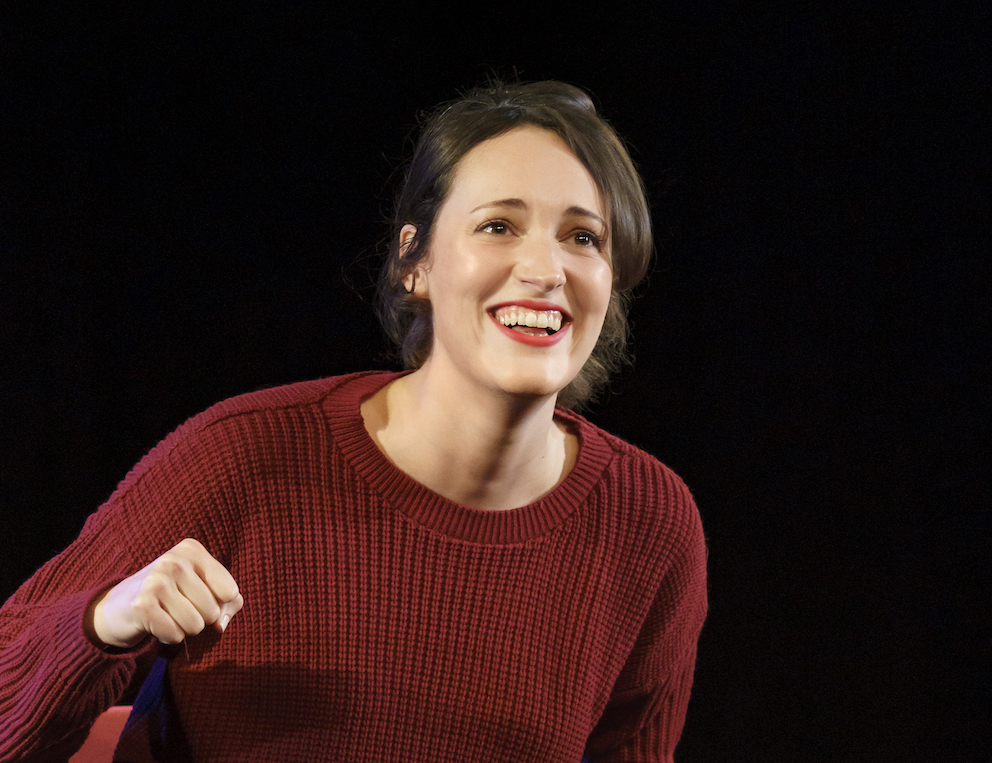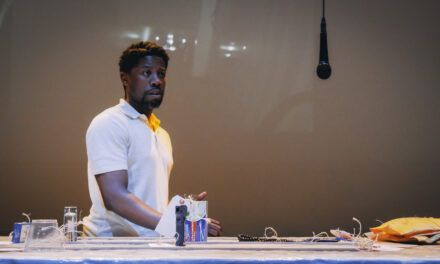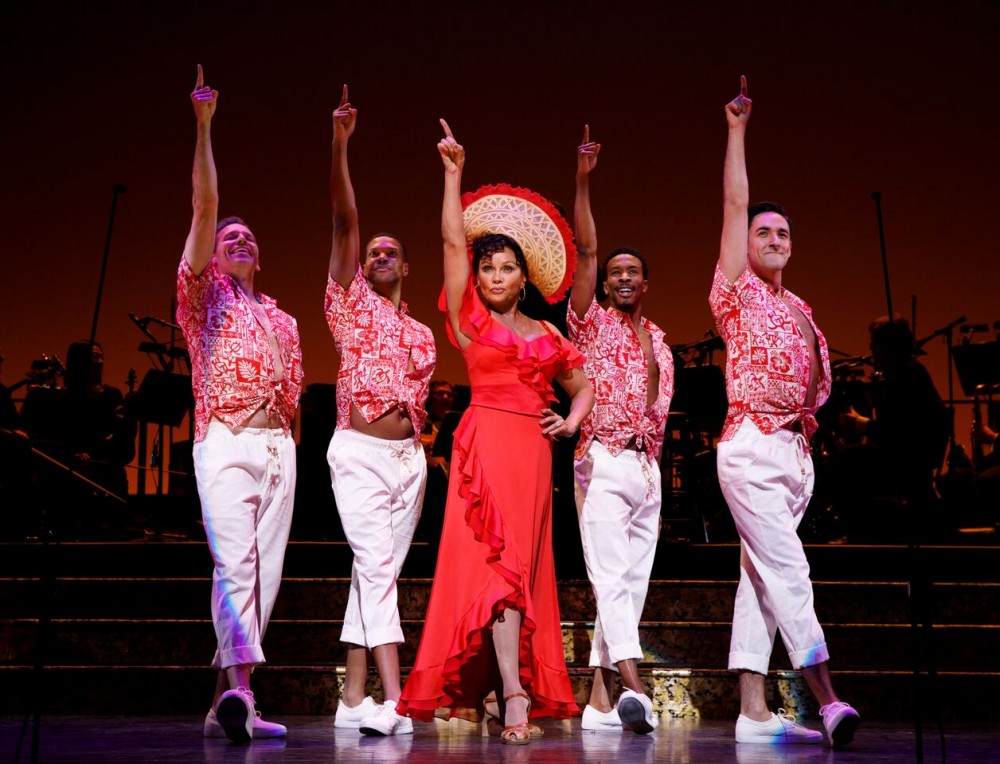by Martha Wade Steketee
Communing with the early work of theatrical familiars has its charms. Rifling through juvenilia on paper or early play script efforts newly staged, it’s possible to identify themes that later preoccupy a writer, upon which we can reflect and analyze, smugly, with great omniscience from a several-decade remove. We hear a young writer playing with inspirations—there a character or two from Hedda Gabler, here a contemporary potboiler plot twist, and over here social class conflicts reminiscent of Ernest Hemingway and F. Scott Fitzgerald. Those hints are sufficient reason for the package of two short Eugene O’Neill plays O’Neill (Unexpected) at Metropolitan Playhouse to exist and for American theater history to embrace these early works.
The house music in the humble second story, flexible three-sided Metropolitan Playhouse performance space is well curated (“I Love a Piano” and “Shine on Harvest Moon” prepare us for the first piece and “Nobody” and “Moonlight Bay,” among others, prepare us for the second, with simple period vocal arrangements and instruments). Each act’s action takes place amid upper class comforts—a Catskill summer home in “Recklessness” in a single evening, and a three-month time span and two different households in “Now I Ask You.” Pieces of furniture and a few doors comprise the “set design” credited to director Alex Roe, who keeps the action flowing elegantly throughout the production and even gives us a flash of two characters from the second play in the opening moments of first piece as a taste of what’s to come. The fine costumes by Sidney Fortner do most of the period-setting work of setting us among “the privileged classes enjoying its privileges” (as Macaulay Conor reflects in Philip Barry’s The Philadelphia Story—1938 stage and 1940 film).
O’Neill’s one act “Recklessness” explores a yearning Mildred (Erin Beirnard) married to the rich and significantly older Arthur (Kelly King), and her intense summer affair with the young family chauffeur Fred (Jeremy Russial). We root initially for the lovers while we know of the marriage that binds Mildred and her distaste for the poverty she knew as a child. The early return of Arthur from a business trip, treacherous roads, a car in disrepair, and jealousy dictates action for the balance of the play. There are also elements of the noir-y Vincente Minnelli-directed melodrama Undercurrent (1946) that draws from related themes of jealousies and privilege and danger from fast cars and fast horses.
“Now I Ask You” packs three acts plus extras into 90 minutes, and there isn’t enough substance to justify the complications or the length. “Free love” and the question of marriage and young jealousies and taming a young wife (and, egad, a discharged gun on stage) drive this plot. Will Lucy (Emily Bennett) really settle down with her betrothed Tom (Terrell Wheeler), even after they sign an agreement to allow for free love and open relationships? Will their friends Gabriel Adams (Rick R. Williams) and painter Leonora Barnes (Dylan Brown) entice Lucy back to the Greenwich Village she thinks she loves? Will Lucy’s mom Mary and dad Richard (Kim Yancy-Moore and David Murray Jaffe) educate Tom to wait the shenanigans that Mary refers to as “Lucy’s rainbow chasing?” Leonora suggests her feminist commitments are temporary. “It’s hard to live out of one’s period. I suppose I’ll be respectable when I’m too old to be anything else.” Yes, the 90 minutes drag on, but the performances are fun with Leonora especially providing some Eve Arden style witticisms. To her boyfriend Gabriel she says, as the plot points are resolving, “You can’t pick a fight with me tonight Gabe, I had too much dinner.”
The acts of O’Neill (Unexpected) are of unequal weight and quality and don’t dig deep into individual motivations and family dysfunctions as do his later works. I might have switched the order for a different kind of narrowing theatrical punch at the end of the evening. The 90-minute “Now I Ask You” feels like Dangerous Liaisons without the stakes. The 30-minute “Recklessness” is haunting and harrowing, a search for happiness across social classes, that becomes a Twilight Zone version of revenge by a cuckolded husband that we watch play out, step by step. In any order, this historical and dramaturgical presentation of O’Neill’s early works is instructive and often moving.
O’Neill (Unexpected). Through June 30 at the Metropolitan Playhouse (220 East 4th Street, between Second Avenue and The Bowery). www.metropolitanplayhouse.org
Photos: Svetlana Didorenko
























